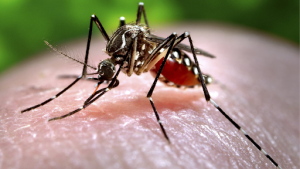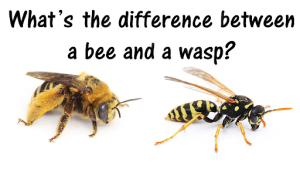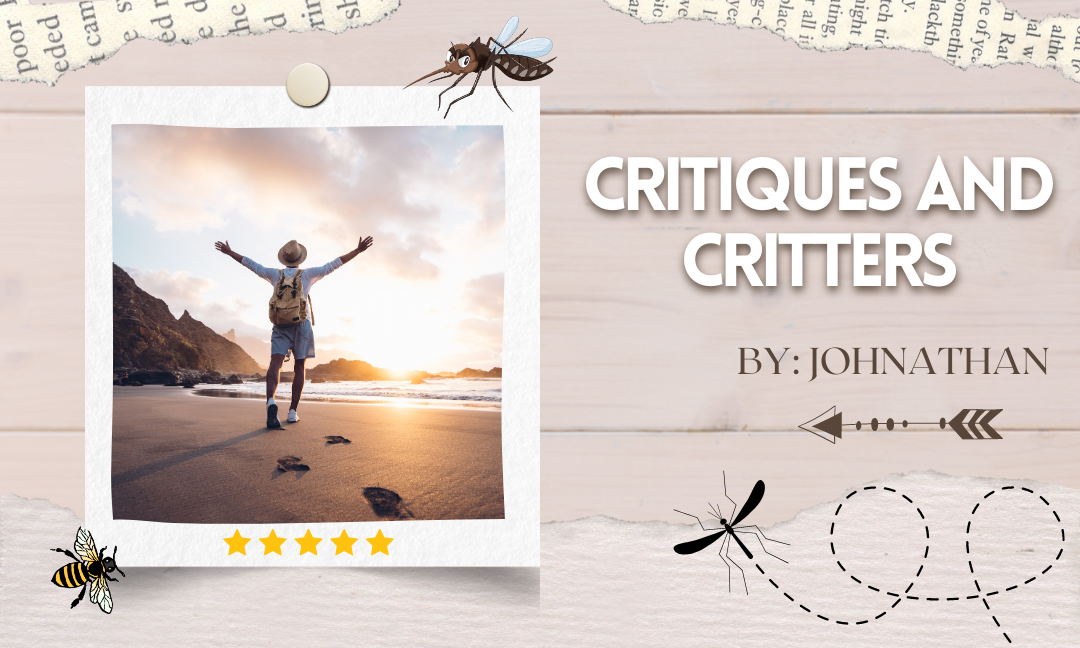Written by: Johnathan
Edited by: Koneenika Datta
Designed by: Miriam Alonge Wato
Published by: Miriam Alonge Wato
 People generally view insects as pests and nuisances to gardens and residential areas. An example would be mosquitos, locusts, lice, fleas, etc. Truthly though, only one percent of all insect species are harmful to humans.
People generally view insects as pests and nuisances to gardens and residential areas. An example would be mosquitos, locusts, lice, fleas, etc. Truthly though, only one percent of all insect species are harmful to humans.
Many parasitics wasps (yes the ones we all know and “love”) lay eggs on garden pests like Tomato Hornworms (Manduca sexta) and other caterpillars this parasitism effectively prevents those caterpillars from laying their own eggs and the cycles continues anew when those wasp eggs hatch and they go on to continue that cycle protecting you and your very red tomatoes.
This isn’t limited to wasps but also some flies who actively prey on corn borers (Ostrinia nubilalis) and squash bugs (Anasa) which effect more than just your squash; these beetle like insects can very quickly devour the plant they reside on these include; melons, cucumbers, and pumpkins which especially during the halloween pumpkin season is quite frightening. Do be careful if you intend to remove any insects from your garden, especially if you plan on touching them bare handed, do your research as I’m doing right now to find out which insects truly are dangerous for your garden. Some insects look very eerily similar but have vastly different functions in our environment (“Beneficial Insects and Good Bugs For Your Garden | GardeningCalendar.Ca”), (Beneficial Insects), (Franziska).
Moving on since it’s almost the summer season already I think it’s only right to talk about some of our favorite summer pests or in this case least favorite pests and how they might actually be better for the environment, but also some ways to protect yourself from them.
- Mosquitos: These insects are probably the most well known pests to everyone around the world but also like most insects only a small percentage bite human beings. Mosquitos aren’t exactly parasites because they don’t depend a hundred percent on a host and are more vampiric in a sense. Mosquitos use a straw-like appendage to drink blood from animals or people so they can get iron especially and other minerals found only in blood. They’re especially pests to humans because they can transmit their own parasites and diseases through this feeding method. One issue with mosquitoes is their very quick adaptability. mosquitos grow from an egg to adult in roughly two weeks, meaning generations of mosquitoes can quickly grow within a year. Mosquitoes are also responsible for transporting different species of illnesses that typically only affect animals on to us humans. Zika virus is one of these found originally in Rhesus macaque monkeys in Africa; it hitched a ride on mosquitos and into humans where it then adapted and spread throughout (Vector-Borne Diseases). A good way to protect yourself from mosquitoes is to wear slightly thicker clothes preferably lighter in colours which is the best you can do in terms of preventing mosquitos bites without any technical equipment (“More Mosquitoes?”). Mosquitoes aren’t all bad though they contribute heavily to the food chain feeding local frogs, fish, birds, and other insectoid species (Natural Mosquito Predators | West Baton Rouge Parish, LA). They also surprisingly contribute to the pollination of plants, before they start biting animals and us for our nutrients they land on flowers and plants for their sugar/glucose, this is typically not long before they switch to blood for iron and proteins (“What Purpose Do Mosquitoes Serve?”).
 Wasps: My worst nightmare a couple years back. These evil cousins of the very fluffy honey bee are quite the pest during the summer and around porches where they build paper mache like nests and occasionally damage and eat our lovely fruits and vegetables grown in our gardens (Canada). Wasps, unlike bees, sting more than once, but like bees are also always looking for sugar from flowers or random bits of food or drinks, which is why we commonly find them hovering near garbage bins. Wasps are similar to mosquitos in the sense that they also land on flowers and pollinate and are also prey to the exact same animals as mosquitoes. If you’re looking to prevent mosquitoes from nibbling at your fruits and vegetables it’s recommended that you keep an eye out for wasp activity or small nests forming near your house the quicker you spot a hive the easier it is to get rid of. Wasps are very attracted to scents so be careful of leaving food out and wearing scented perfume or sanitizers and to avoid walking around barefoot or to avoid stepping on wasps (this happens more often than you think) (Canada). It’s heavily discouraged to remove a wasp nest on your own especially if it’s large. If you want it gone it’s best to call a professional (Canada).
Wasps: My worst nightmare a couple years back. These evil cousins of the very fluffy honey bee are quite the pest during the summer and around porches where they build paper mache like nests and occasionally damage and eat our lovely fruits and vegetables grown in our gardens (Canada). Wasps, unlike bees, sting more than once, but like bees are also always looking for sugar from flowers or random bits of food or drinks, which is why we commonly find them hovering near garbage bins. Wasps are similar to mosquitos in the sense that they also land on flowers and pollinate and are also prey to the exact same animals as mosquitoes. If you’re looking to prevent mosquitoes from nibbling at your fruits and vegetables it’s recommended that you keep an eye out for wasp activity or small nests forming near your house the quicker you spot a hive the easier it is to get rid of. Wasps are very attracted to scents so be careful of leaving food out and wearing scented perfume or sanitizers and to avoid walking around barefoot or to avoid stepping on wasps (this happens more often than you think) (Canada). It’s heavily discouraged to remove a wasp nest on your own especially if it’s large. If you want it gone it’s best to call a professional (Canada).
This is only a small fraction of information on the ecosystem in Canada. Oftentimes we forget that everything is a part of a greater system: mosquitos, plants, and us are a part of a large chain and our gardens and the animals living in them are just another piece of a puzzle we continue to add on to. There’s a lot to be learned from starting your own garden and doing your own research, if you plan on starting your own garden we implore you to research and read into because it’s quite fascinating and also a healthy hobby that has some benefits if you want to be healthy as well as contribute to the world’s stability at a time when it seems to be the least stable when hundred of species go extinct every year due to habitat loss.
Bibliography
“Beneficial Insects and Good Bugs For Your Garden | GardeningCalendar.Ca.” Https://Gardeningcalendar.Ca/, https://gardeningcalendar.ca/insects/beneficial-insects-good-bugs-to-encourage-in-your-garden/. Accessed 8 Apr. 2023.
Beneficial Insects: Meet the Beneficial Bugs in Your Garden (with Pictures) | The Old Farmer’s Almanac. https://www.almanac.com/beneficial-insects-garden. Accessed 8 Apr. 2023.
Canada, Health. Wasps. 11 May 2012, https://www.canada.ca/en/health-canada/services/pest-control-tips/wasps.html.
Franziska. “Beneficial Garden Animals and Insects.” Plantura, 5 Oct. 2022, https://plantura.garden/uk/beneficial-insects/beneficial-garden-animals.
“More Mosquitoes? Why Canadians Could Be Seeing an Uptick This Summer and beyond – National | Globalnews.Ca.” Global News, https://globalnews.ca/news/9039490/mosquito-season-canada-2022/. Accessed 8 Apr. 2023.
Natural Mosquito Predators | West Baton Rouge Parish, LA. https://www.wbrparish.org/394/Natural-Mosquito-Predators#:~:text=Frogs,as%20excellent%20for%20mosquito%20control. Accessed 9 Apr. 2023.
Vector-Borne Diseases. https://www.who.int/news-room/fact-sheets/detail/vector-borne-diseases. Accessed 9 Apr. 2023.
“What Purpose Do Mosquitoes Serve? • The National Wildlife Federation Blog.” The National Wildlife Federation Blog, 3 Sept. 2020, https://blog.nwf.org/2020/09/what-purpose-do-mosquitoes-serve/.

